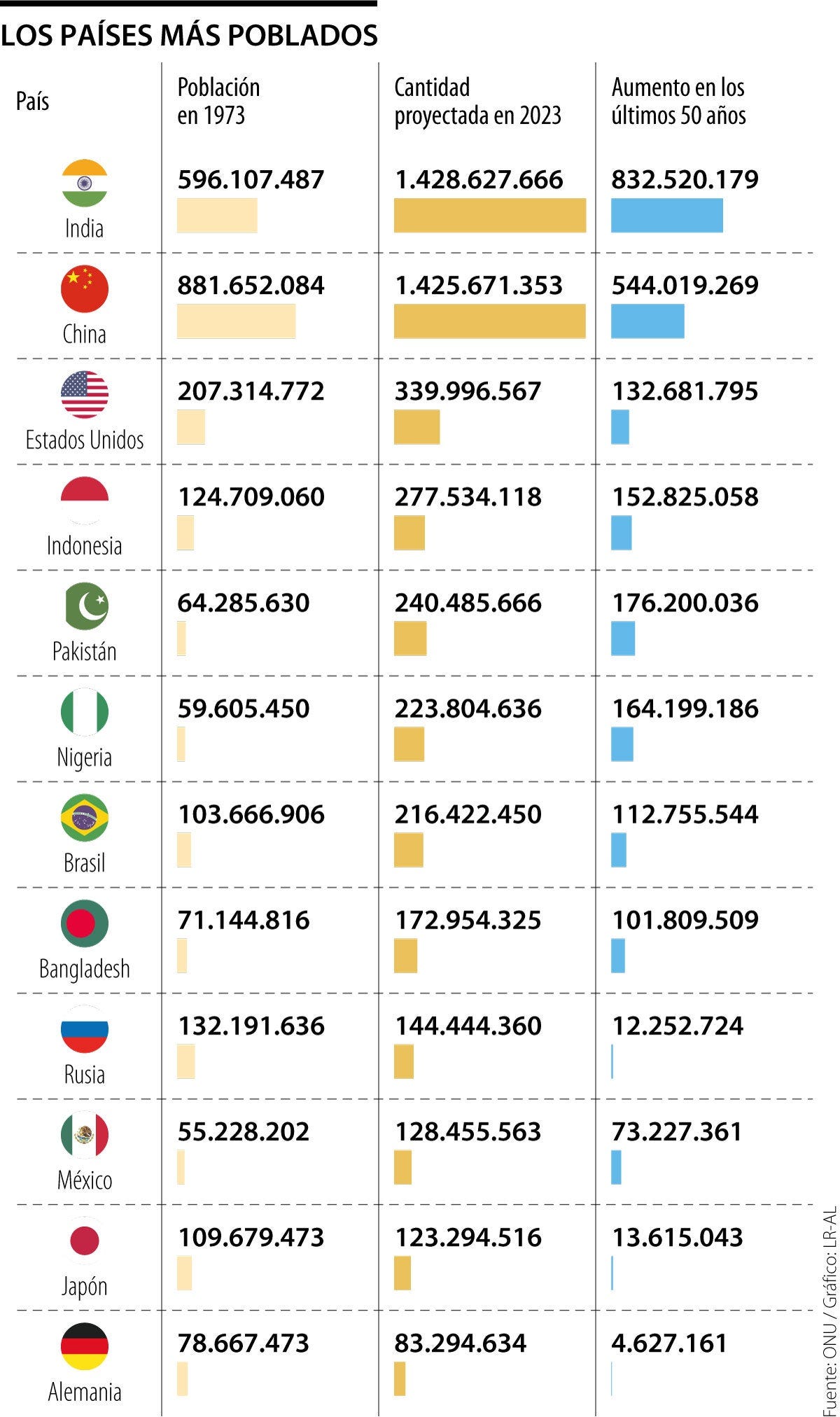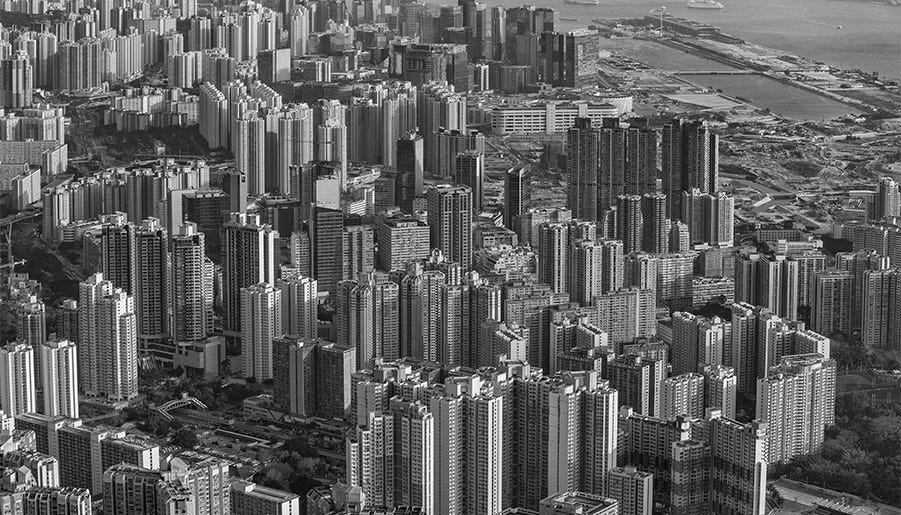O, wonder!
How many goodly creatures are there here!
How beauteous mankind is! O brave new world,
That has such people in't. - Shakespeare in The Tempest
Huxley published his dystopia in 1932 and since then many of the fictions he anticipated have become real and materialized. In 1962 he published The Island, a utopia that attempted to be a counterpoint to Brave New World, but which has been less successful, both in literature and real life.
On my side I am going to present some ideas, that may appear close to a utopia due to their difficulty, but plausible if one has the will, power and time to execute it, considering the current and foreseeable capabilities of science and technology Today.
A model of a better and plausible world from 2025 onwards
The idea is to outline what a sustainable world with a reasonable level of well-being for all or most humans could look like. These are general guidelines based on some of the most significant variables.
I assume that they will the parameters that make human life possible in the coming years will be maintained until the model is achieved. A model that is based on the following decalogue:
Taking the Humanity as a subject with a basic vital objective: to survive by loving
A universal ethical principle “whatever is good/better for the aforementioned basic vital objective is good/better”
A Human Constitution and a World Authority
Group and cultural diversity
Intelligent selfishness/altruism at all levels
Responsible parenthood
The greatest possible self-sufficiency
Material well-being with personal austerity for all according to their circumstances and cultures
Promotion of universal virtues and values and punishment of faults and crimes against humanity
Maximum individual freedom
Main elements to be developed
1. A Human Constitution
This constitution will include, at least, the following aspects:
a) The existence of Humanity as a subject, composed of all human beings alive at any given moment.
b) That all human beings, by virtue of being such, have as their basic vital purpose and objectives the survival and well-being of humanity, and therefore the duty and right to do or omit what is good/best for these objectives.
c) All people have the same dignity and the same duties and rights, to be exercised according to their circumstances and those of their environment.
d) There will be a World Authority and an Ethics Council, both elected by all countries or by a sufficiently large majority.
e) This Authority and its Council, taking into account the risks and strengths of humanity, both immediate and foreseeable, will establish and keep up to date and operational the standards that develop the above points.
2. The Model of World Society
In principle, the states and nations existing at the time of signing the World Constitution will be maintained. Potential conflicts will be resolved by the World Authority according to the criteria of point 1b.
Religions, associations, political parties and all public and private entities and companies whose existence does not flagrantly threaten the objectives of point 1b will also be maintained.
All the aforementioned entities, public and private, will endeavour to operate with maximum effectiveness and efficiency, seeking the greatest possible material and spiritual well-being for their current and future members.
In any case, all states and nations and the groups and collectives mentioned must adapt their laws, norms, customs and practices so that they favor and do not harm the objectives of point 1b. To do so, they will follow, as necessary, the norms and indications of the World Authority and the Ethical Council. As far as I know, the basic objectives are good for the transcendent purposes of believers. And also for the earthly happiness of believers and non-believers.
There will be no national armies or heavy weapons. Only the police forces necessary to maintain public order and ensure compliance with current laws and regulations will be retained. Wars and the cost and pollution of producing and maintaining weapons, airplanes, ships, etc. are avoided. The factories and people saved are used to produce other necessary goods and services.
3. The population
The number, type and distribution of people alive at any given time is one of the factors that most influences the quality of life and the risk of self-destruction by lethal weapons and environmental problems. Here are some ideas:
a) Responsible parenthood. The human species has reached more than 8 billion individuals today by instinctively following, like the rest of living beings, the same inclination to multiply as much as their means of subsistence allow. According to believers of the Book, this tendency is included in the mandate of Genesis to “be fruitful and multiply and fill the Earth” and humans are also asked to take care of what has been created.
In any case, it seems clear that we humans have the duty and the ability to try to ensure that the number, conditions and distribution of the global and group population are optimal so that humanity does not become extinct and so that all people live together in the greatest possible well-being. I am copying a definition of optimal population for a country, which can be extended to the world:
The optimal population of a country is that which is most likely to produce a good and sustainable quality of life for its inhabitants without negatively affecting the quality of life of people living in other countries or of people who will live in future times.
In 1973 the world had about 4 billion people and in 2023 almost 8 billion.
While preparing this article I discovered an English association founded in 1991 under the name Optimum Population Trust, now called Population Matters, and according to Wikipedia it promotes reflection on the impact of population growth on the environment. It considers that an optimal or sustainable world population would be between 2.7 and 5.1 billion, taking into account for this range the emission of CO2 and two types of lifestyle with greater or lesser consumption.
They also calculated the optimal population for 150 countries. For the United Kingdom, with a population of 61.3 million in 2010, the optimal population could range between 17 and 27 million depending on CO2 emissions and lifestyles. In Spain, with a population of 40 million in 2010, the optimal population would be between 13 and 23 million. In 1941, the year I was born, Spain had 26 million and now there are almost 50.
Although I do not agree with part of what they say, I recommend looking at the data and studies from Population Matters , according to which the optimal population can be reached without trauma in a short period of time.
Regarding individual responsible parenthood, the 1975 UN conference in Mexico stated:
Every couple and every individual has the right to decide freely and responsibly whether or not to have children and to determine their number and spacing, as well as to receive information, education and the means to do so.
And in the operative section it urges governments to:
Make available to all the necessary information and advice and appropriate, easily accessible facilities and services to enable women who so wish to decide on the number and spacing of their children and, furthermore, to prepare young people for responsible parenthood.
I believe that there is general agreement on the basis, but differences in motivation and the means to be used for between the position of the UN and that of the biblical religions. I have addressed this important question on the web, in my article Human Present and Future, points 3.5. and 3.6 on the number and quality of life of the population, sexuality, family and procreation.
b) Migration. All people must be free to move around the world. But countries can and must have the ability to decide who crosses their borders and for what purpose. Each country is responsible for the well-being of its citizens and for contributing to global objectives and must therefore have the ability to develop its own policies. Without prejudice to the fact that, in the general interest of humanity and of the countries of origin and destination, permanent or temporary migration policies may be established under the guidance and control of the World Authority and its Council.
c) Tourism and residence. There should be an effort to suppress or reduce regular tourism. This activity involves using highly energy-consuming and polluting means of transport. It alters the coexistence and habitat of the recipients.
With today's systems, we can discover the wonders of our world on the screens of devices installed in our homes or surroundings. And all countries have places where we can go sightseeing with short trips.
In another sense, it may be advisable for less populated countries with better natural living conditions to admit retired people, or equivalent, from other countries with worse habitat and more populated areas as permanent residents
4. Economy and society
It seems good to maintain and promote the existing diversity of cultures and their free and natural evolution, but prioritizing the following universal principles:
a) Individual austerity. Personal well-being adjusted to the standards of each group without excess or waste. It does not seem good to have more consumer goods such domestic appliances, clothing, furniture, etc. than necessary for a decent life. It is also not necessary to have real estate or other goods that are little or not used at all. We should avoid unnecessary consumption and ostentation.
b) Production and consumption. To produce and consume only the type of goods and services that are most suitable for a dignified life for people according to their cultures. And that are less polluting in their manufacture, transport and use. It seems that we can do without luxury yachts and cars, jet skis, private planes, etc.
c) Tending towards self-sufficiency of countries. Many countries today have the capacity to produce most of the goods that their optimal population would need to live with dignity. And much of that population can surely be busy and happy by dedicating itself to producing the type of goods and services best adapted to their habitat, using the most appropriate techniques for the conservation and improvement of their environment. And if they have to import goods, they should try to do so from the nearest countries with the easiest transport. Or by expanding the space for self-sufficiency through agreements with neighbors.
d) Energy. With the measures outlined, I believe that the consumption of energy from non-renewable and polluting sources would be substantially reduced. For the optimal population and for the remaining uses and activities, energy does not seem to be a serious problem, taking into account the many current and developing possibilities.
e) Political and economic systems. Each country can continue with the ones it currently has: democracies of different types, capitalism, communism, republics, monarchies, dictatorships, etc. The only condition is that they assume the universal ethical principle and the obligations and norms that it implies. the belonging of each country to humanity.
f) Laws, customs and traditions. All countries, religions, groups and collectives can have their own laws, customs and traditions. These will only be limited by what would mean going against freedom and individual rights and duties to follow the rules derived from the universal ethical principle which, I recall, has altruism/love as a priority element.
g) Ecology. The relationship between humans and their environment is a vital issue and its management must be a priority for the World Authority and its Council. Ecology must be a human ecology, with the primary goal being the survival and well-being of current and future humans. And to do so, all habitats must be taken care of: the soil, the atmosphere, the water, and especially other living beings, animals and plants. With current means and techniques, this is not difficult if the rest of the applications are implemented.
h) Genetic engineering. The development and proper use of these techniques in their various applications is extremely important:
In defenses for prevention and cure of diseases and malformations
To proactively improve human capabilities in our current or similar habitat. The limits would be set by science and the universal ethical principle.
In defensive and proactive ways for the maintenance and improvement of current or potential human habitats
For the adaptation of humans to other habitats, both on this Earth if the risks can be foreseen, and to be able to live in other places
All species try to evolve to adapt to changes in their environment and at the same time influence and modify that environment. Some species of ants are a classic example. We humans have done it: from the first farmers and cattle breeders who improved plants and animals, to modern direct interventions in the genome of living beings, including humans themselves. And we must continue to do so; with the advantage that we now have a clear objective and attitude: survival itself and altruism/love.
How to get to this model?
In Chapter 8 of the Human Life Report (page 87 on the preferred scenario), I outlined the things to be done as well as a possible timetable. Technically it is not difficult if the Earth can support humans for about 50 years from the time the process starts.
These ideas will soon be made explicit: through some wise man who “sees” them and spreads them, or through hatching.
Altruism/love will continue to grow and some kind of World Authority will be established: by peaceful agreement of states or after a world war with millions of dead.
Sooner or later, humanity will tend towards this design, or something similar, by fair means or foul. What is desirable is that, as soon as possible, the two basic laws and the universal ethical principle be seen and assumed by civil and religious leaders. And that they act accordingly.
I think that's enough for today. In a future article I will try to write about some issues that have been left unsaid. Among others: the use of so-called Artificial Intelligence and social engineering, marginalized people, creators of ethics, universal virtues and crimes, individual ethics and morality.
As always, I will appreciate criticism and suggestions.
https://survivenciayaltruismo.org






